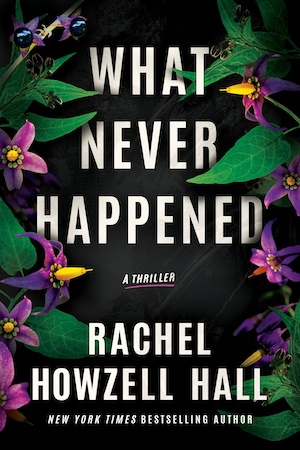
It is March 2020, the COVID pandemic has begun, and Colette ‘Coco’ Weber is about to test the validity of the truism that you can never go home again. As the prospect of the first lockdown looms large, she is reluctantly returning to her childhood home in Catalina Island, off the coast of California. Her marriage to struggling actor Micah appears over, and her college friend Maddy has offered her a job at the island newspaper writing obituaries.
Moving back will also give Coco a chance to support her aunt, Gwen. Gwen’s social worker has been contacting her with some worrying reports about the old woman’s forgetfulness and wandering. By living with Gwen, Coco may give her aunt a chance to keep her independence, but will Gwen see it that way? The house Gwen lives in technically belongs to Coco, but that doesn’t curb Gwen’s suspicious and covetous nature.
A potential conflict with her aunt isn’t Coco’s only concern. She’s quite aware of how few black faces there on the island, especially compared to Los Angeles, where she’d been living. Then there’s the house itself. Coco’s father moved his family to Catalina Island for work, and it’s there that tragedy struck. Close to 20 years ago, Coco was the only survivor of a deadly home invasion, a legacy which left her an increasingly valuable asset as the island gentrified, but also left her traumatised with anxiety and trust issues.
It isn’t long before we begin to question Coco’s mental state. Coco takes little at face value, and seems constantly suspicious. How much of that worry is the reasonable caution of a black woman on her own in a new environment, and how much is the result of an overactive imagination brought on by trauma and the stress of moving and the pandemic? Coco’s paranoia only increases as the man found guilty of her family’s murder is released after a successful appeal. Establishing Coco as an unreliable narrator helps build suspense as the author gradually brings in the two mysteries which form the over-arching plot.
The first of these is that Coco’s life is in danger. There appear to be break-ins at the home, threatening messages from Micah, and finally a series of obituaries which prophesise her death. Will she fall off a cliff, or die in a bison stampede?
The second mystery comes gradually with the realisation that elderly women are being murdered. But by who, and why? One thing is clear, the drive for available housing means a lot of valuable properties are being released on to market. It takes some time, but Coco is finally able to persuade Maddy, and her new reporter boyfriend, Noah, to help her investigate.
There’s a lot going on in What Never Happened. Gwen and Coco’s antagonism and mistrust make for a domestic thriller, while there are also quiet horror elements, a noirish unreliable narrator and the two mysteries. The book also explores themes of gentrification, trauma, family and racism. This is reflected in the length of the novel. It goes on too long and two threads in the story become frustrating – Coco’s relationship with her therapist, and a book deal to write about the home invasion, which were never developed. Perhaps a more focused, streamlined approach might have served the story better.
However it’s undeniable that the author knows how to write an effective thriller, and after nine novels, we can no longer call Rachel Howzell Hall a rising star of crime fiction; she has arrived.
Have a look at Land Of Shadows and Skies Of Ash by the same author.
Thomas & Mercer
Print/Kindle
£2.99
CFL Rating: 3 Stars










